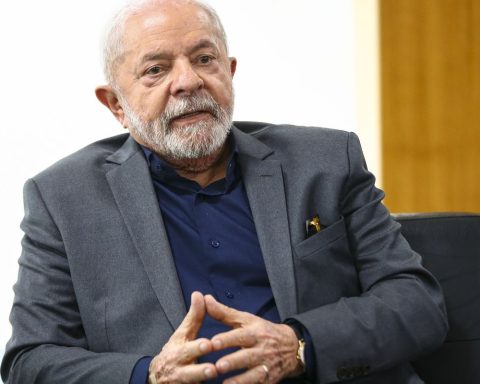September 2, 2022, 7:00 AM
September 2, 2022, 7:00 AM
In recent times, the request to carry out the population and housing census in 2023 is losing intensity, and the department of Santa Cruz clings, but increasingly lonely.
This is the conclusion reached by representatives of some sectors consulted, who also agree on the need to rethink the struggle, establish alliances with other departments and generate national awareness that the census not only benefits the regions with the highest immigrationbut also to those that have flight of inhabitants.
Former civic leader Carlos Dabdoub believes that the strategy should consist of involve the other regions in the importance of doing the census as soon as possible, since, for now, perhaps the rest of the country believes that it is a Santa Cruz whim, when rather they should understand that “Santa Cruz is being played throughout the country, he is fighting alone, while the others, well thank you”.
Beyond the pacts between regions, it calls for a commitment to multi-sector allianceswhether between universities, civic institutions, etc.
In this sense, the president of the Interinstitutional Commission for the Census, the rector of the Uagrm Vicente Cuéllar, met with universities from all over the country in an extraordinary conference, in which the demand of the national system, that it has to do with economic resources due to the deficit, and that could be resolved with the census.
In this approach, according to Cuéllar, those present understood that in recent years The central government has individually summoned the universities“and when we negotiate the budget individually we are weak,” he said.
Yesterday, Cuéllar too met with workers and the executive of the Central Obrera Departamental (COD), Roland Borda. At the meeting they made clear to the president of the Inter-institutional Commission their rejection of unemployment as a measure of pressure to carry out the census in 2023. Borda said that the workers support that the census be carried out “according to the most appropriate technical parameters”
Representing the unions, the deputy of We believe, Clotilde Padilla, reported that the formal merchants from all over the country will march this September 16 in all departmentsnot only in rejection of Bill 249-21, but also in favor of carrying out the national census in 2023.
“We want to know how many independent workers there are in Bolivia, and ask the government to listen to the people’s request,” said the legislator.
Carlos Dabdoub pointed out that, regarding the stubbornness of the Government, to insist on the census for 2024, he believes that it has to do with three reasons. First, the economic and social reality of the country would be verifiedwhich “is sure to contrast with the successful results that it always wants to show”.
As a second point, he said that a census before the elections will show that there was fraudwhen the current population number is less than that reflected by the Supreme Electoral Tribunal.
“And the third reason, which is relative, is that since Santa Cruz is the only opposition department at this time, with strength and unity, by increasing the number of parliamentarians, they will surely think that they will also will increase the political and opposition force in the next government“, he claimed.
For now, Dabdoub believes that the idea persists that only the municipalities with the most migration will win with the census.
Along the same lines is the opinion of former civic leader Germán Antelo, who proposes the strategy of adding, since It is not an exclusive struggle of Santa Cruz, but also of the poorest municipalities and provinces.. “Not only those who have gained people, as is the case of Santa Cruz, El Alto and La Paz, but also those who are losing population and legislative representation, because it means that the policies of this government are totally wrong,” he said. .
Antelo emphasized three aspects: not giving up, raising awareness that it is a national struggle, and leading this movement from Santa Cruz, to put an end to the centralized and authoritarian management of the country, which he called re centralization.
Lastly, although he believes that the Civic Committee and other Santa Cruz institutions should assume this responsibility as political authorities, he clarified that it is the people who have to define everything in the streets.
for him the best It is not to take this to an assembly of La Cruceñidad, but to the streets, to a councilwhere hundreds of thousands of people define the route, especially because today the “Government tries to give this movement a name, as if it were the governor or a person, but this is not a particular whim, it is a citizen will, defending a right that corresponds to him, to know his reality,” he asserted. To the Santa Cruz and Bolivian people, Antelo says that “he who gets tired loses, and that is what the Government plays at”.
Former prefect Carlos Hugo Molina also said that Santa Cruz should show Bolivia that his concern about the census is not for the department, but for what the entire country needs.
He also indicated that the region must demonstrate the importance of the census based on the needs of the departments that are losing population. “The longer the census is delayed, the more difficulties those departments will have because they are going to continue losing population, and the census should serve to approve corrective policies in economic, social and public policy matters“, plot.
Regarding the distribution of resources, he says that although it would depend on the population, there are compensation mechanisms for municipalities and departments below the national growth average.
The analyst Rolando Schrupp argued that a simple superficial analysis of the situation is enough to show the lack of strategic planning and the obedience to reactionary criteria, with hormonal overload and low neuronal load, “where it is the national government that has the political initiative”.
After these considerations, he pointed out that this is a moment of decision, whether to continue down the path of deepening the internal fractures of Santa Cruz, or to pause to define a strategy, and reverse the imminent defeat and attrition.
Schrupp said that it is time to gather the Santa Cruz institutional intelligence, define the roles of the actors and assign tasks.
It identifies several “critical” points: the principles of struggle; the strategic objective, which is to deepen the autonomy; the executive objective, which is the fiscal pact; the operational objectives, that is, the construction of a narrative and counter-narrative.
In line with the other opinions, Schrupp also opted for the accession of regional strategic allies. “If the cause is to fight for bread and not crumbs, ask Potosí, Beni, etc. that we join efforts so that the fiscal distribution is not 80% for centralism and 20% for the regions, but rather 50/50”, he added.
Among other critical points, Schrupp mentioned the articulated political struggle between benches in Congress and regional parliaments. Also the legal measures for breach of duties, economic damage to the State, discrimination, etc., by constitutionalists.
In addition, he recommended the internal organization, with definitions of the roles of the actors; the survey of own data; and finally, non-violent de facto measuressuch as the closure of borders, marches to the seat of government, civil disobedience, parallel institutions, street protests, strikes, etc.
“What are we really fighting for? Who is the enemy? The colonial power that plunges us into inequality and poverty?” she alluded.
For analyst Marcelo Arequipa, Santa Cruz needs a strategy that goes in two directions: political leadership and public management capacity of that leadership.
He assumes that these two elements were condensed by the previous governor, Rubén Costas, and not by the current one.
“Camacho only has the political leadership, but still very much reduced to Santa Cruz, without a national perspective, this is reflected, for example, in the fact that Manfred Reyes Villa, in Cochabamba, has a better position than Camacho in opinion polls” , said.
Like his fellow analysts, he considers that Santa Cruz urgently needs articulate an opposition bloc similar to what the media luna was in its time.
political commission
The technical coordinator of the Interinstitutional Commission for the Census, Manfredo Bravo, reported yesterday that work is being done on the formation of an eminently political commission, because “the government’s actions are political.”
Bravo assured that alliances are already being sought with other departments and sectors to question the Government from another perspective.

















